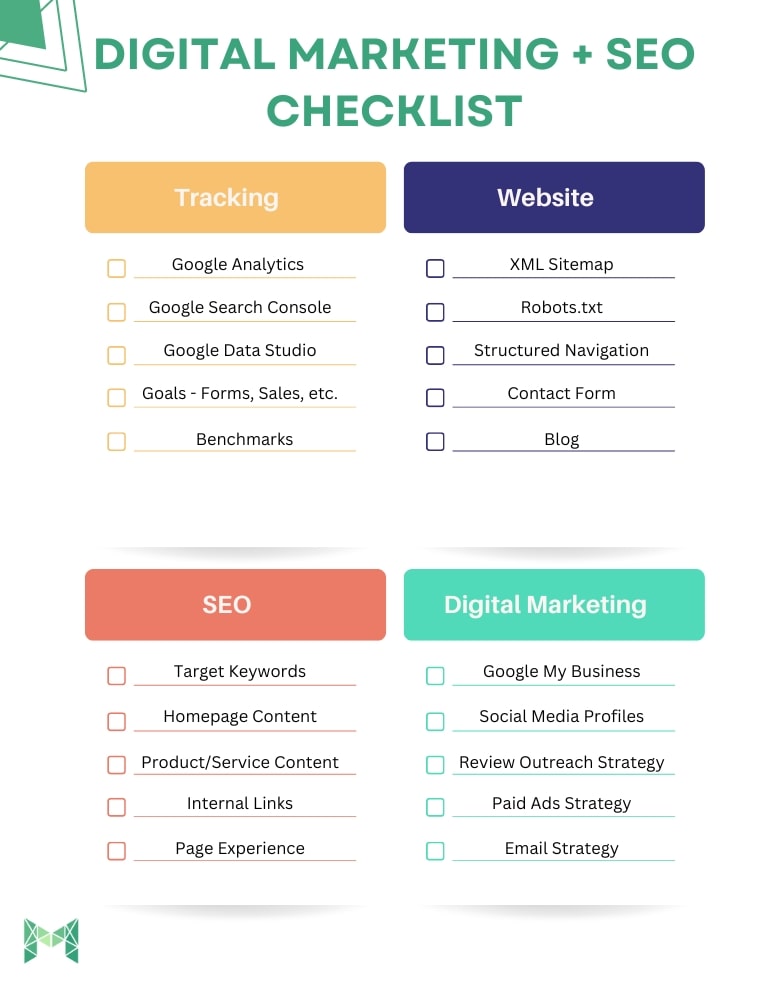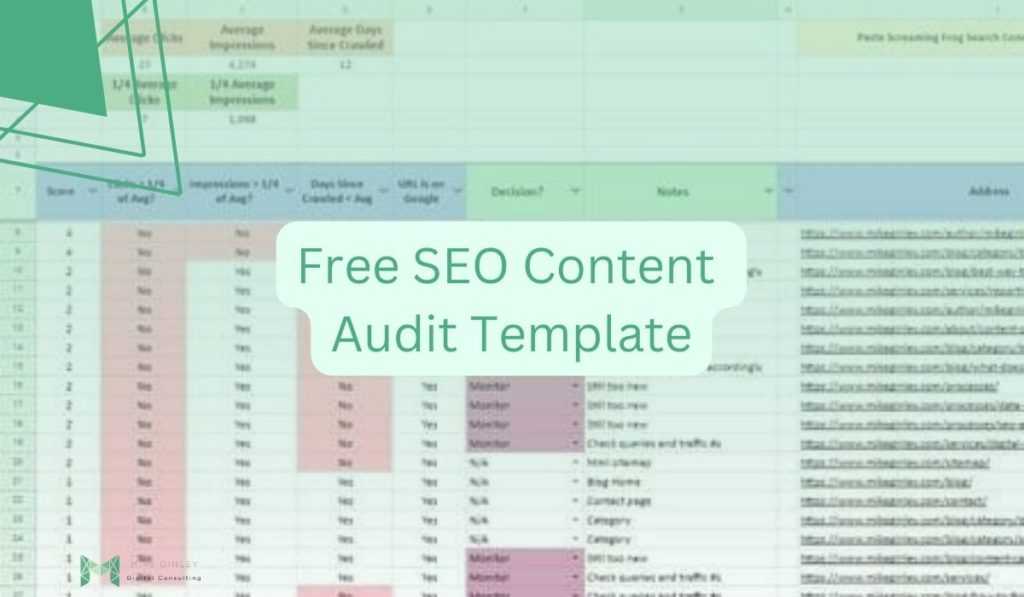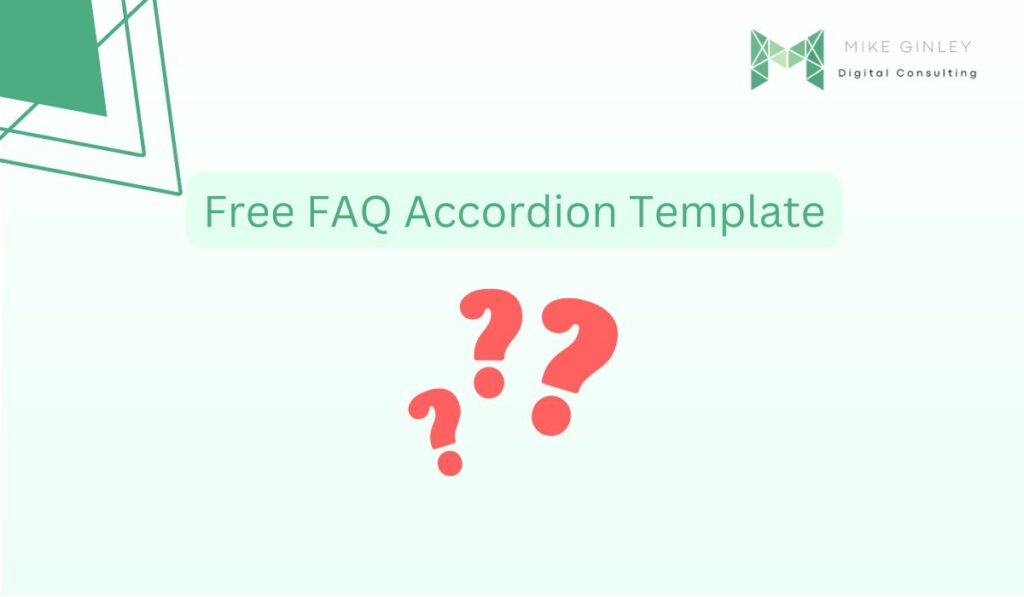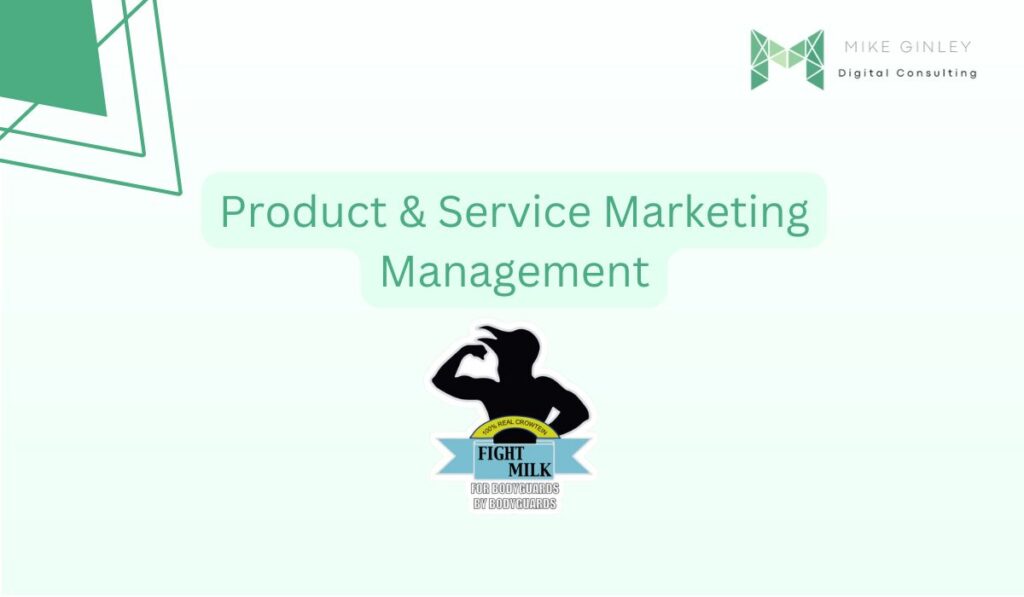I have worked with lots of different websites that wanted to get started with SEO & Digital Marketing, but their version of that was much different than mine. They were thinking of very advanced optimizations when they didn’t have the basics taken care of. Think structured data or large paid campaigns when their tracking wasn’t even set up or forms weren’t enabled.
It’s an issue I see a lot and unfortunately, there are shady agencies or consultants who will take the money even though they know it will not be successful. I want to cover the essentials for anyone to get started and build a solid base so that you can grow over time in a logical way.
What is Digital Marketing + SEO
To get started we need to cover what these areas of website development are. This may be obvious for some, but there are people out there who may be looking to learn more, and that’s exactly who this article is for.
Digital marketing is the practice of promoting products or services through digital channels, such as search engines, social media, email, and websites. This can include search engine optimization (SEO) which we will cover more separately, content marketing, email marketing, social media marketing, pay-per-click advertising, and more.
SEO, or search engine optimization, is the practice of improving the visibility and rendering of a website and or webpage to improve rankings on search engine results pages (SERPs). It involves optimizing various elements of a website, such as content, structure, rendering and backlinks, to make it more appealing to search engines like Google and Bing. The goal of SEO is to increase organic traffic to a website, improve its online visibility, and ultimately drive more conversions and revenue. In other words, optimize for users.
These 2 disciplines are not just posting to Facebook or adding keywords. They are so much more than that so please get those thoughts out of your heads. There is a lot of strategy that goes into both of these areas and they are not done overnight. In this article, I will go through how you can get started and ideally improve the success of your website over time.
What to Start First? SEO or Digital Marketing?
There are lots of arguments for this, but I would always lead by starting with SEO before Digital Marketing. SEO is way more than keywords, it’s solving the user’s problems with content and a positive website experience. If you don’t have those then you really have nothing to market.
On your website you will need to ensure you have the Who, What, Why & How thoroughly covered. A lot of sites miss this when they start out.
- Who – Who are you and who are you trying to attract?
- What – What are you selling (services or products)? What sets you apart from the competition?
- Why – Why should users care? Why are you in this field?
- How – How do people move forward? How does this help them?
When you have these covered on your website you can then start to market these with digital channels. These should be covered on the homepage, about page and whatever the money product/services may be. I know that seems like a lot but your website should be your best salesman, give it the info it needs to do that. Use my free SEO Content Template to help with this.
How To Get Started With SEO
Create content
Content is king in digital marketing and SEO. Create high-quality content that is optimized for search engines and provides value to users. Do not post for the sake of posting, it drives me and search engines nuts. Use tools like Google Keyword Planner (free) or paid tools to find keywords that your target audience is searching for and relate to your products/services, and use these keywords in your content. Ideally, you will have Google Search Console or other tools set up to know what keywords/pages are key.
Crawl
Check out your site with a tool like Screaming Frog to see if there are any visibility issues (broken links, orphan pages, XML issues). This is a very inexpensive tool for how valuable it is. If you do not know how to use this tool reach out to a reputable digital marketing freelancer. They should be able to give you a thorough SEO + digital marketing plan. Hopefully, you can get started by yourself to get the ball rolling, I have covered this in my DIY SEO article.
Monitor
Keep an eye on your performance. Use tools like Google Analytics, Google Search Console & Google Data Studio to monitor your website’s metrics. This will help you track your traffic, user behavior, and other key metrics. Use this data to make informed decisions about your digital marketing and SEO strategy. When you start developing some baselines you can then create goals to attain. This will be a big part of the overall Digital Marketing process, knowing how to invest based on ROI.
When you have this base established you can start to expand slowly into marketing with other digital channels like social, email and paid.
How To Get Started With Digital Marketing
Define your goals and target audience
Before you start any digital marketing campaign, you need to define your goals and target audience. What are you trying to achieve? Who are you trying to reach? Once you have a clear understanding of these two things, you can start to develop a strategy that will help you achieve your goals and reach your target audience.
Choose the right digital marketing channels
There are many different digital marketing channels available, such as social media, email marketing and PPC. Each channel has its strengths and weaknesses, and it’s important to choose the right ones that will help you achieve your goals and reach your target audience. For example, if you want to reach a younger audience, social media might be a good choice, while if you want to target people who are actively searching for your product or service, PPC might be more effective. Over time when you start to build a list of emails based on customers you can then move into email marketing which can be very targeted.
Create a content strategy
No matter which channels you choose to use, creating high-quality content is essential. Your content should be informative, engaging, and relevant to your target audience. You should also consider the format of your content, obviously, writing is essential, but does video make sense for your users? Create for the users and you will be rewarded in the long run. Creating a content calendar can help you stay organized and ensure that you’re consistently producing high-quality content.
Measure and analyze your results
Digital marketing is a continuous process of testing and optimizing. It’s important to measure and analyze your results to see what’s working and what’s not. This can help you make data-driven decisions and refine your strategy over time. You should track metrics such as website traffic, social media engagement, email open and click-through rates, and conversion rates. Give these channels a solid shot and see how it works. Don’t abandon too quickly because you don’t see the results you want, these things can take time.
Keep learning and experimenting
Digital marketing is constantly evolving, so it’s important to keep learning and experimenting with new tactics and strategies. Joining online communities, attending webinars and conferences, and reading industry blogs can help you stay up-to-date on the latest trends and best practices. Take a look at my other articles to keep learning, especially The Best Way To Learn SEO & Technical SEO.
Digital Marketing + SEO Checklist
This checklist below is the bare minimum for Digital Marketing + SEO. There is no perfect way to optimize your strategy but I would recommend starting in order for each section. You cant skip to Benchmarks without having Google Analytics data just like you can’t have content without target keywords.
Any of the sites I listed at the bottom of this article will have more info on these so you should be able to accomplish them by yourself, but if you run into any issues please reach out to me!

How To Continue Digital Growth
Treat your digital marketing and website like an employee. You need to put time and effort into growth. There are always ways to improve if you take the time. Keep trying to learn and experiment based on past experiences. Talk with your customers, ask about their experiences to see how you can improve.
Don’t have the time to handle all your Digital Marketing needs? Check out my article on Digital Marketing Consultants vs. Agencies to learn how to properly hire help!
Just always be curious to learn and grow!



